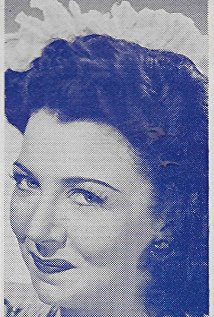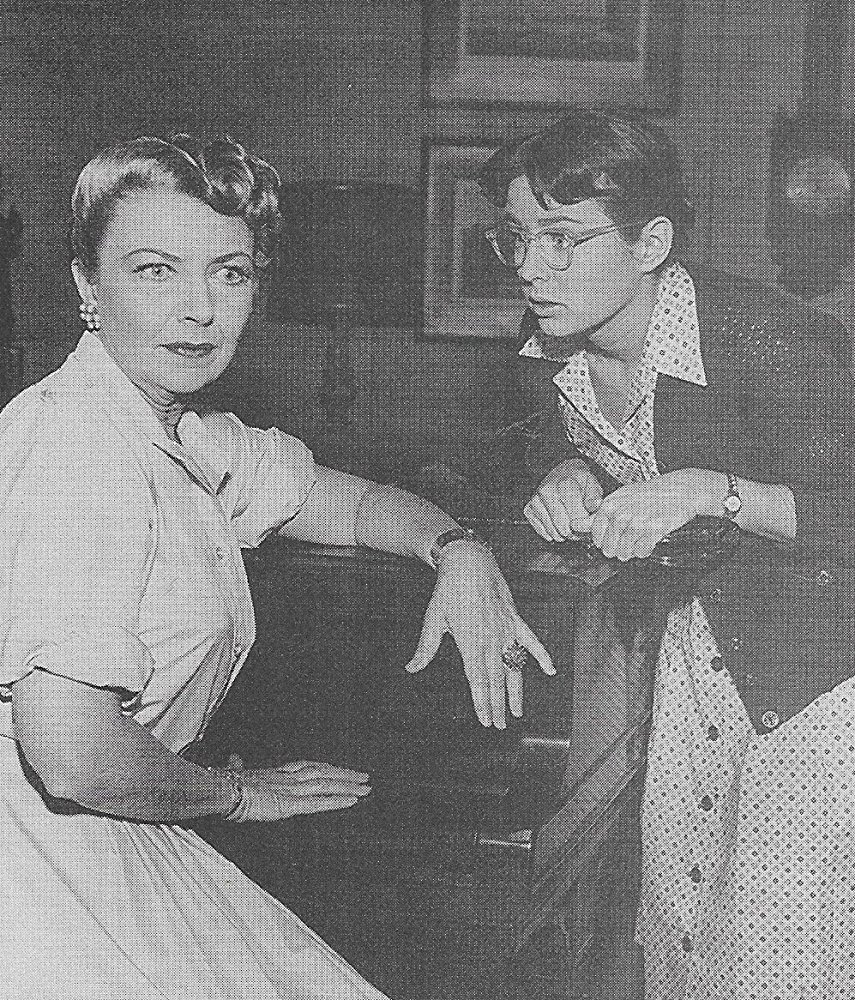
Barbara Jo Allen
Birthday:
2 September 1906, New York City, New York, USA
Comedienne/writer Barbara Jo Allen induced laughs nationwide after originating and literally becoming synonymous with the talky, shrill-voiced, man-hungry spinster "Vera Vague," a WWII creation in the late 1930s. She kept the name throughout much of her career and was often billed as such. The character, however, was to be both her fortun...
Show more »
Comedienne/writer Barbara Jo Allen induced laughs nationwide after originating and literally becoming synonymous with the talky, shrill-voiced, man-hungry spinster "Vera Vague," a WWII creation in the late 1930s. She kept the name throughout much of her career and was often billed as such. The character, however, was to be both her fortune and her curse.Barbara was born on Fifth Avenue in New York City on September 2, 1906. She developed a deep passion for entertaining in high school and appeared in many of her school plays. After graduating, she went to study at the Sorbonne in Paris. Following the death of her parents she moved to Los Angeles to live with an uncle. She broke into radio in 1937 playing the part of Beth Holly on "One Man's Family," then moved into a succession of popular programs such as "Death Valley Days" and "I Love a Mystery."Inspiration for her highly prim-looking and utterly absurd clubwoman caricature came after the comedienne attended a PTA meeting in which a woman was lecturing endlessly to a group of parents on world literature. The woman had literally no thought pattern and changed the subject with every sentence. The proverbial light bulb switched on and "Vera Vague" was born. The name itself became a household term. Barbara Jo first introduced the character on "NBC Matinee" in 1939 and went on to write most of her own material. Bob Hope took an interest and hired her for his Pepsodent-sponsored show. A favorite, she stayed with the program for many years and, along with other Hope connections such as comic Jerry Colonna and singer Frances Langford, traveled with Bob on his various USO tours throughout the world. She also appeared with other top radio stars of the time such as Al Jolson and Jack Benny.Essentially a radio artist, she went on to appear in over 50 pictures. In real life, the glamorous and lovely, raven-haired Barbara Jo was nothing at all like the "old maid" character so it slowly evolved into a dizzy, man-chasing gal on film, not unlike the Lucille Ball TV scatterbrain that was forthcoming. In short films from 1938, Barbara made her feature debut unbilled in the classic The Women (1939). She received better or co-star billing in such subsequent "B" musicals as Sing, Dance, Plenty Hot (1940), Melody and Moonlight (1940) opposite Johnny Downs, Kiss the Boys Goodbye (1941) backing up Mary Martin and Don Ameche, Ice-Capades (1941), Hi, Neighbor (1942), and Lake Placid Serenade (1944), providing needed comedy escapism during these war-torn times. The matronly cut-up stole more than a few scenes in Buy Me That Town (1941), Mrs. Wiggs of the Cabbage Patch (1942), Henry Aldrich Plays Cupid (1944), and Girl Rush (1944), among others. Barbara Jo began appearing in comedy shorts for Columbia in 1943 opposite Leon Errol. Her voice was purposely dissimilar to the "Vera Vague" voice in her first two-reeler You Dear Boy (1943), the title also being a popular "Vera" catchphrase. After that, however, Barbara Jo played "Vera" to the delight of her audiences. Two of her Columbia vehicles were nominated for Academy Awards in both 1945 and 1946. She starred in over a dozen shorts for Columbia in all, ending the long run in 1952.Barbara Jo slowed down considerably after that. Still billing herself as "Vera Vague," she was a regular on the variety show Ford Festival (1951), and earned TV hostessing jobs on such shows as Follow the Leader (1953) and The Greatest Man on Earth (1952). After being featured in the musical remake of her 1939 film "The Women" entitled The Opposite Sex (1956) as the ever-chatty Dolly DeHaven, she was heard in the immortal animated Disney classic Sleeping Beauty (1959) in which she voiced Fauna, the green "good fairy" character. It was a happy reunion with other fellow radio veterans Verna Felton, who inhabited the part of Flora (the red fairy), and Barbara Luddy as the rolypoly blue fairy Merryweather.Because she could not escape the "Vera Vague" tag, Barbara Jo eventually retired. In 1943 she married Hope's producer Norman Morrell. Her husband went on to work with other famous names such as Andy Williams. The couple had one daughter and settled in the Santa Barbara area of Southern California until her death in 1974. She had huge compassion for animals and later wrote and published the book "The Animal Convention," which was a story for children in which she voiced ecological and environmental concerns. Show less «

Fauna
















